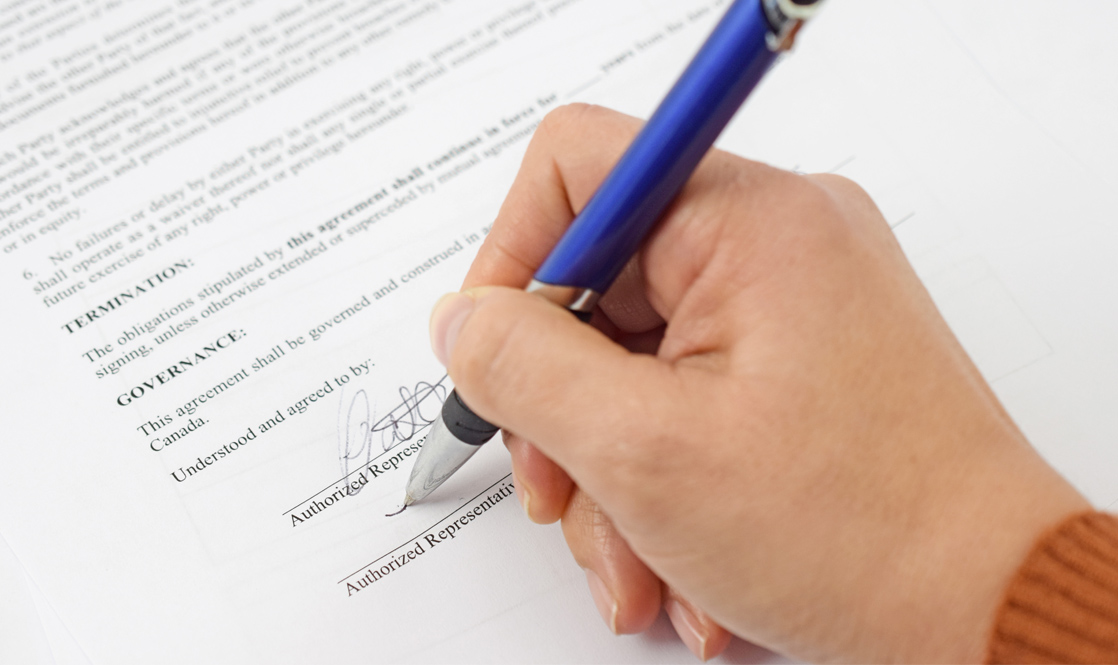When to use a non-disclosure agreement
When people have great ideas for a new product or business, one of the first questions they ask is: “When should I use a non-disclosure agreement?”
Let’s start by clarifying what a non-disclosure agreement (NDA) is. An NDA is a legally enforceable contract that includes a promise not to divulge secrets. It’s a useful tool for protecting your confidential information. Every NDA should have at least the following specifications:
- what not to disclose;
- a non-disclosure period;
- specifications about when signatories are free to disclose information, such as a product announcement or if the idea has been made public.
Do I need a non-disclosure agreement or a patent?
How do you know whether you need a patent or NDA? Here is the tricky part. Once you have disclosed your secret, you can no longer claim that you own exclusive rights to it. Patent law states clearly that if you disclose details of an invention to the public before filing a patent, the invention will no longer be patentable and anyone can use it.
For any inventor or startup who has not patented their idea, it is extremely important to protect it. The only way is through an NDA. Let us stress that again: if you have an idea and you have not patented it, you need a non-disclosure agreement, unless you fall into one of the categories outlined in the next paragraph.
If your patent is still pending, you have a provisional patent or are working with the patent office on certain claims, or if your patent is issued, the patent office will respect the initial date of your file and you will not need an NDA.
When should you use a non-disclosure agreement?
You use an NDA before you patent your idea. You should also use an NDA whenever you share something valuable about your idea. Here are some situations where you could find yourself needing an NDA:
- pitching your idea to an investor, corporation, partner or distributor;
- hiring a company such as a design firm, marketing company, product development firm, or any company that will be given access to confidential information;
- when employees have access to sensitive information;
- when discussing the sale or licencing of the idea.
In some cases an NDA will not be enough. Some companies won’t even review your submission if your idea is not patented. And some companies will refuse to sign NDAs for legal purposes, then send you a legal document right after a submission indicating that they have the right to work on ideas similar to yours. This is usually procedural but we agree that it is nerve-wracking. To be on the safe side, it is best to file a patent before any presentations, even if it’s a provisional patent.
Whichever is the case, the most important thing is to be prepared. At Spark we use this NDA. Feel free to download a copy and visit us to review your idea.
If in doubt about your pitches and presentations, or if you are in need of help, just give us a call!


Recent Comments